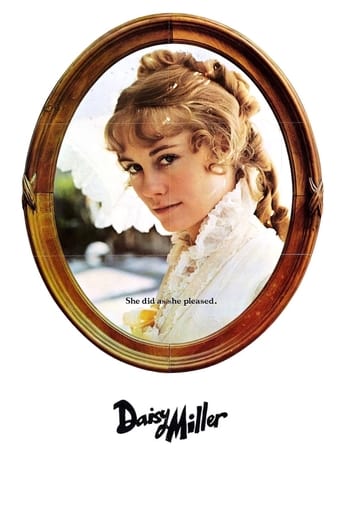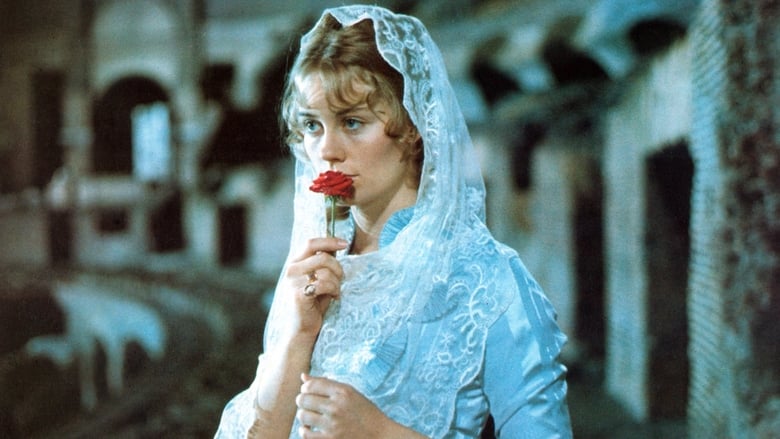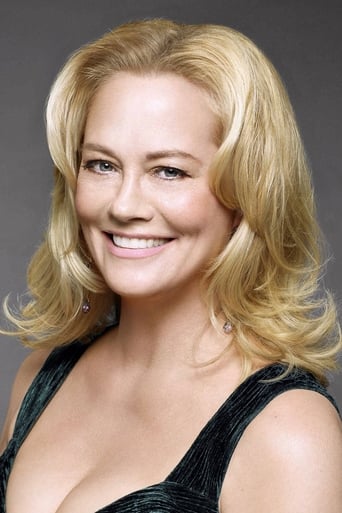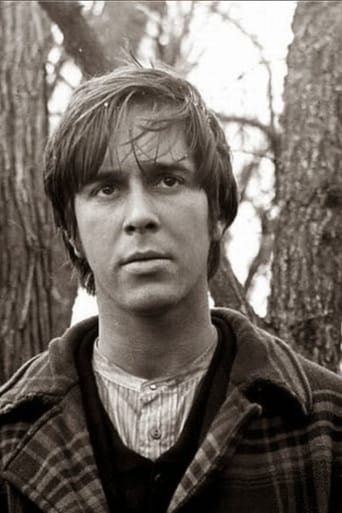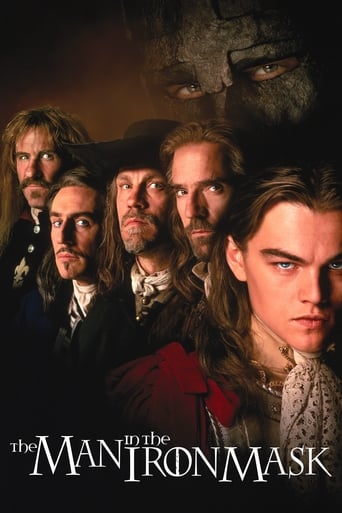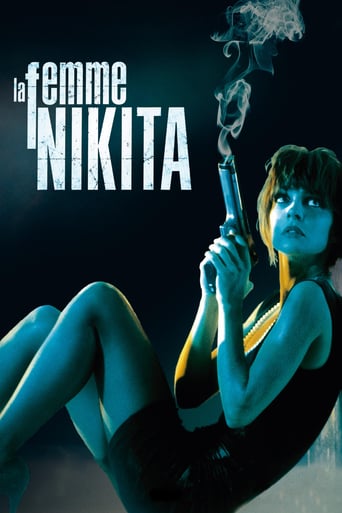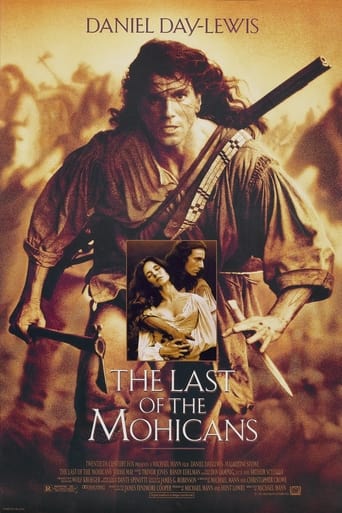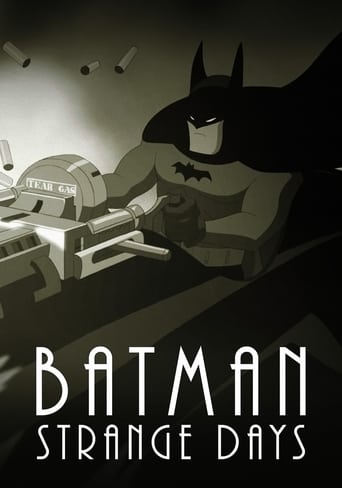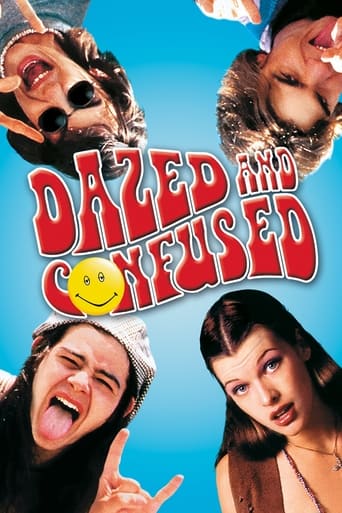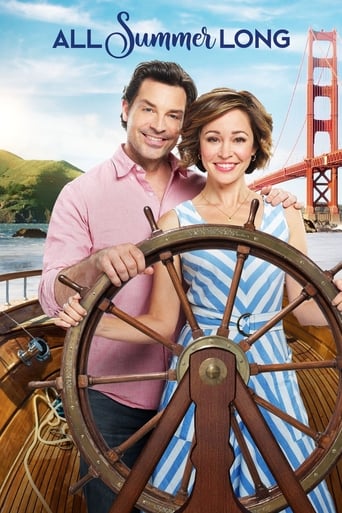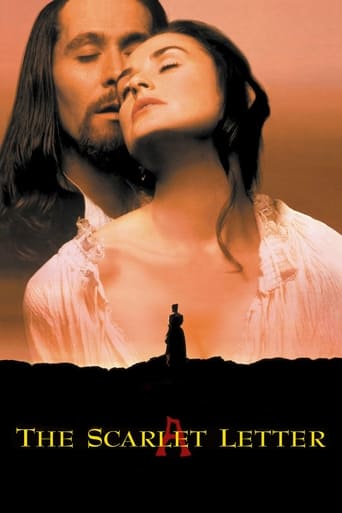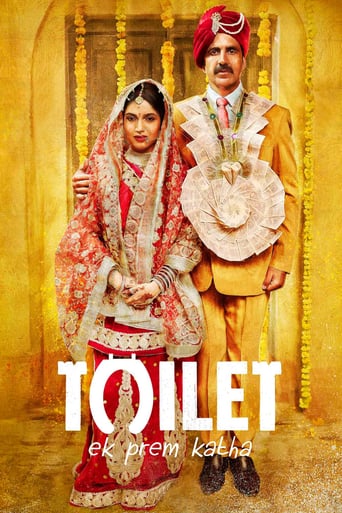Daisy Miller (1974)
Despite mixed emotions, Frederick Winterbourne tries to figure out the bright and bubbly Daisy Miller, only to be helped and hindered by false judgments from their fellow friends.
Watch Trailer
Cast


Similar titles
Reviews
I'll tell you why so serious
The story, direction, characters, and writing/dialogue is akin to taking a tranquilizer shot to the neck, but everything else was so well done.
Exactly the movie you think it is, but not the movie you want it to be.
This is one of the best movies I’ve seen in a very long time. You have to go and see this on the big screen.
Many reviewers here seem to have confused the story and characters with the film and the actors.Yes, Daisy in the film is rather flat and monotonous. But that's a high compliment -- that the ravishing Cybill Shepherd could so accurately portray such a flat character. Henry James at one point describes Daisy's expression as a "light, slightly monotonous smile", in another her voice as a "little soft, flat monotone". He says late in the story that "there was always, in her conversation, the same odd mixture of audacity and puerility". No, she wouldn't be a very pleasant person to be around for long. But that was part of James's point: that our attraction to people (especially those of the opposite sex) often defies reason. Shepard makes the point well.Some have commented that they wished the story had been filled out. Some of those apparently haven't read the story. One of those critics even places the story wrong by forty years. Though called a novella, it's barely more than a short story. In fact the film does a remarkable job of portraying the events and (more importantly) the characters very much as they are in the story. The great majority of the dialog in the film is verbatim from the story.In some instances, the scenes and characters were significantly expanded from the James story. How far should a director go, if the aim is to film a classic story, not just to make something derived from that story? James's characters were pretty flat, a lot flatter than those in the film. One could justifiably criticize the film for telling the story far better than James did.Do you think James's story is dated and flat in the modern world? Well, in many ways so do I. A polemical assault on discrimination based on manners and birth is truly dated. Yet an assault on personal discrimination remains fully current. The modern world is certainly not devoid of personal discrimination. Perhaps it's not often so ugly, not in the first world anyway, but prejudice is very much alive.James's story is also unsubtle: two groups of people with differing views, one person caught with one foot in each camp, unhappy results. That's about it. Should one film the classic story, or build something different? It's a choice; great films have been made both ways. The choice for this film was unambiguous: to film the classic story.The photography is truly gorgeous -- the film (at least the outdoor parts) was shot on location in Vevey, Switzerland and Rome, Italy. Despite the long stretches of dialog, including Daisy's run-on commentaries, one need not strain to understand the words. If the story were as good as the production and acting (several good performances) then this would be a 10. The faithfulness to the original weights it down.
Henry James, like Edith Wharton, is not easy to bring to the movie screen. They are better suited to the television miniseries. I did enjoy the recent movie versions of James's "The Golden Bowl" w/Uma Thurman & Kate Beckinsale and Wharton's "The House of Mirth" w/Gillian Anderson & Laura Linney. Bogdanovich's adaptation would've made a much better PBS miniseries with the storyline stretched out & elaborated, just like the multitude of classics that were being produced for the small screen by the British in the 1970s. Bogdanovich's movie "Daisy Miller" is an excellent adaptation of a James novel. Not perfect, but somewhere on the right track. Bogdanovich gets the visuals down pat and you get the feel of 1870s Italy, certainly a lengthy trip by an American in the 1870s. For those decrying Cybil Shepherd and blaming her, please give me a break! She's 23, she has nothing more to do than to look beautiful & vulnerable and utter a few lines. A lot of her scenes she doesn't say nothing. She even dies at the end. If Shepherd had died in 1974 after this movie was released y'all would be saying she was a 'great' actress taken before her time. Instead many of you are remembering Shepherd for her off stage shenanigans, personal life, her instances in the trash tabloids, her affair with Bogdanovich etc. Who cares, she's beautiful & effective in this, which surprised even ME when I first saw the DM. I much prefer Shepherd in DM than in the Last Picture Show. The movie is sumptuously photographed. The photography is really the star here. The costumes are well done giving the aura of nothing but 1870s. As I said, this would've been much nicer in a mini-series(it still could be) where the time & pace could be spread out. Instead Bogdanovich had to whittle his movie down to a 2 hour or less running time as audiences don't like to sit through a long period piece. Bogdanovich took a chance tackling a Henry James story in the early 1970s knowing how fickle American audiences can be but he may have been influenced by the British TV imports then first arriving on US televisions. Lastly I would recommend DM, especially for lovers of costume dramas, Masterpiece Theater and the like. Give this picture at least one viewing as you may come off surprised and liking it , as I did.
I agree with the reviewer who finds Ms. Shepherd utterly wrong for the part, and quite destroying the film. Henry James is a much more subtle portraitist of Americans abroad during that period than either actress or director could represent. For a start, someone so obnoxiously shallow as Shepherd's Daisy, and whose attempts at vivaciousness and flirtation so blatantly stagy, that the young hero must have been an absolute dill to have been so smitten. Nor is the actress so beautiful (or really young) as to make his sexual infatuation credible. Still it could have been worse, it could have been the worst "simperer" of all time, Mia Farrow cast in the role. That would have been a pill. However, possibly her special brand of naive vulnerability may have made Daisy more sympathetic. Thank good EVERYONE ELSE in the cast (apart from an uncharismatic and therefore unconvincing, Duilio del Prete as Gionavelli) is not only believable, but put in amazing performances, especially Barry Brown, Cloris Leachman, Mildred Natwick and Eileen Bannen, all perfect in their roles.The theme of innocence destroyed by the social environment, not to mention evil schemers (as in Portrait of a Lady) or in this case, symbolically, the natural environment ("Roman Fever"), or even supernatural environment (as in Turn of the Screw) is a really central issue in many of James's novels and stories. To feel sympathy for the protagonist, she (as the protagonist often is) has to have not only innocence (which is misconstrued, exploited and/ or finally shattered), but also a kind of unshakable moral core. This could be as simple as a confident and self-possessed disregard of convention, or a genuine moral belief of the rightness of one's own actions. It is often represented as a subtle character trait. Although these themes are indeed present in the film, Bogdanovich' simply fails to capture the quiet intensity of James's work.
What is "Daisy Miller" about? Why did I watch this movie? To find out that what Europeans consider good behavior is not important? Is this something that we have to teach society? I can understand that it may have been important in Henry James's time, but by 1974, this story is extremely dated and has lost its meaning.

